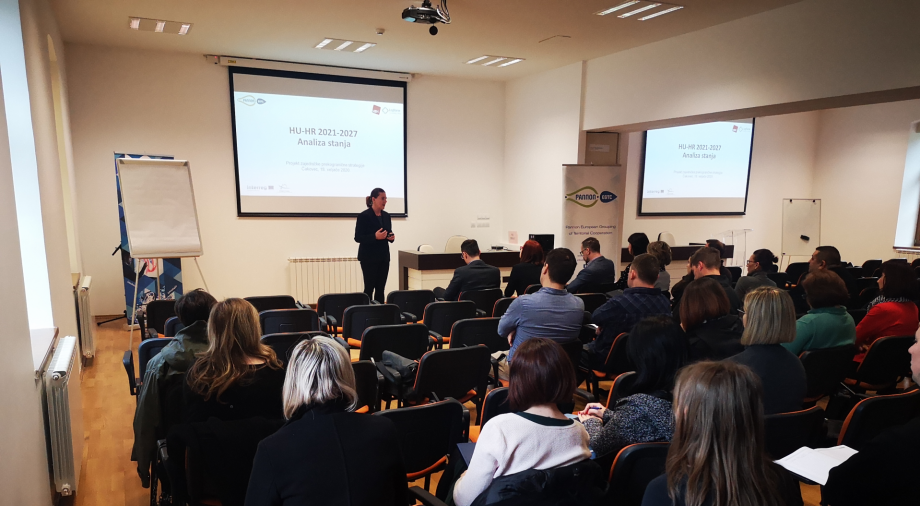Program preparatory workshops in the Hungarian-Croatian border counties

As part of the preparation of the new program, a program preparation workshop was organized in all border counties in February 2023 with the support of the Ministry of Foreign Affairs and Trade as the Managing Authority, organized by the Pannon European Grouping of Territorial Cooperation (EGTC). Pannon EGTC is the organization operating in the Croatian-Hungarian border region, which currently has 63 members: 6 counties (4 Hungarian, 2 Croatian), 54 local governments, and 3 organizations of regional importance, the University of Pécs, the University of Kaposvár and the Danube Drava National Park. In 2018, the organization took the initiative to let it carry out the fieldwork for the next planning cycle and create the 2021-2027 Hungarian-Croatian CBC program with the involvement of local people, which task it won in 2019 as part of a priority project.
The workshops were organized by Pannon EGTC together with the concerned counties. They made a workshop available to all border counties, of which a total of seven workshops were held: three in Hungary (Somogy, Baranya, Zala), four in Croatia (Međimurska, Varaždinska, Koprivničko-križevačka, Bjelovarsko-bilogorska, Virovitičko-podravska, Požeško-slavonska, Osječko-baranjska, Vukovarsko-srijemska). The workshops covered all the main development areas relevant to the comprehensive situation analysis of the program area, and all main stakeholders were invited to every county workshop meeting, such as municipalities (counties, cities), local and county authorities (transport, environment, culture, etc.), business organizations, NGOs, development agencies, educational organizations, universities, program management bodies, and relevant experts in various thematic areas.
The purpose of these regional workshops is to arouse interest in the program, to involve all important interested parties in the programming process, thus turning it into a real joint creative work. The main goal of the workshops is to acquaint the participants with the main results of the situation analysis, to listen to their personal opinions and experiences of the current situation in the topics raised and examined by the analysis, in order to help determine the main strengths and potentials of their county and the entire program area in a broader perspective, as well as the perceived weaknesses.
The main basis and preparatory document for the 7 regional workshops was the draft situation analysis developed by the Pannon EGTC based on existing documents and statistical data. The regional workshops consisted of two phases. In the first stage, the interested parties were informed about the results of the situation analysis, pointing out the main characteristics of the different thematic areas. The participants gave opinions and suggestions for changes to the analysis. In the second stage, the experts proposed the future policy objectives to be selected for the new Interreg program between Hungary and Croatia for the period 2021-2027, taking into account the analysis of statistical data and documents, as well as the ongoing Interreg VA Hungary-Croatia Cooperation Program (2014–2020). The representatives and actors of the counties expressed their opinions and preferences regarding the new planning period (POs), which POs with which content they recommend to be included in the new program.

